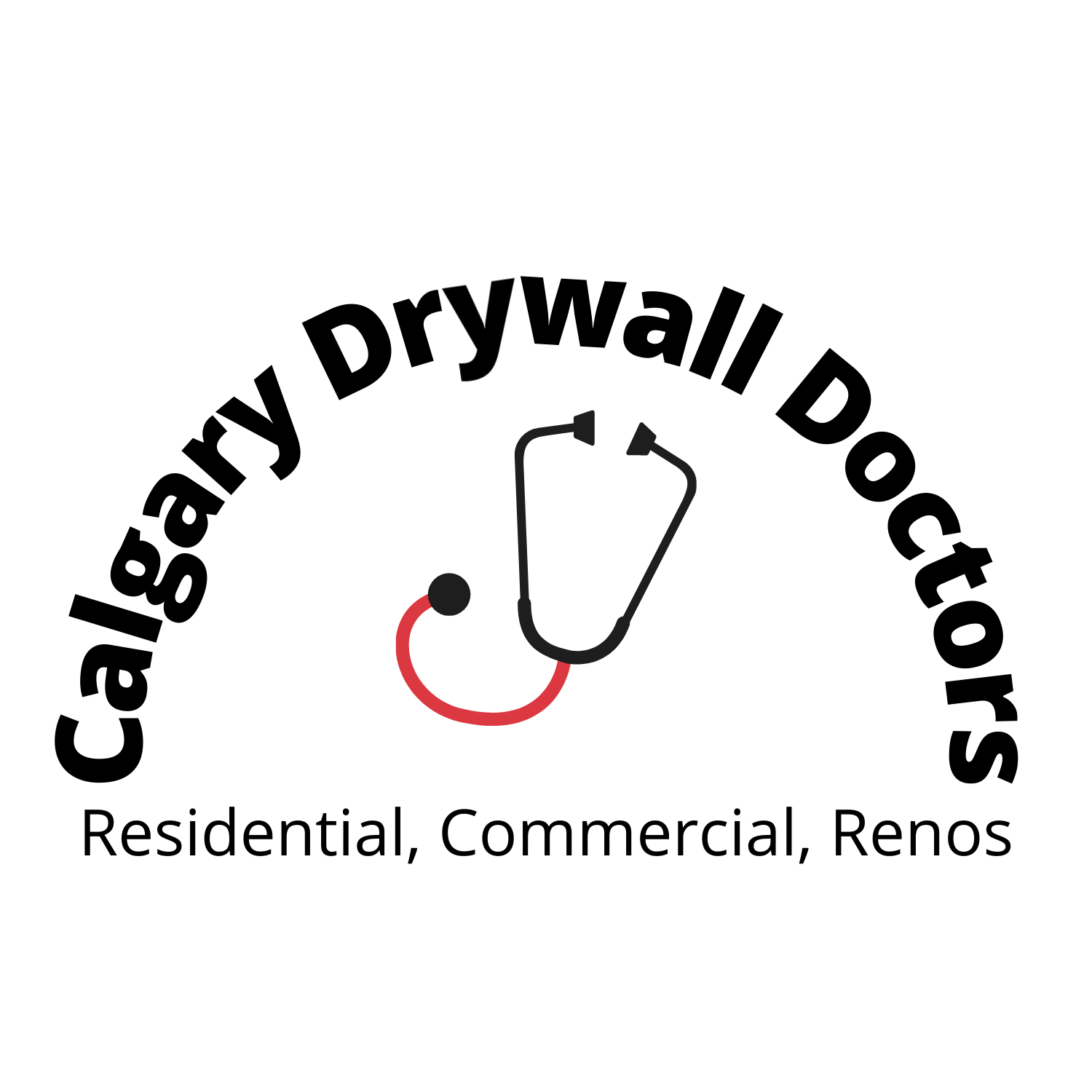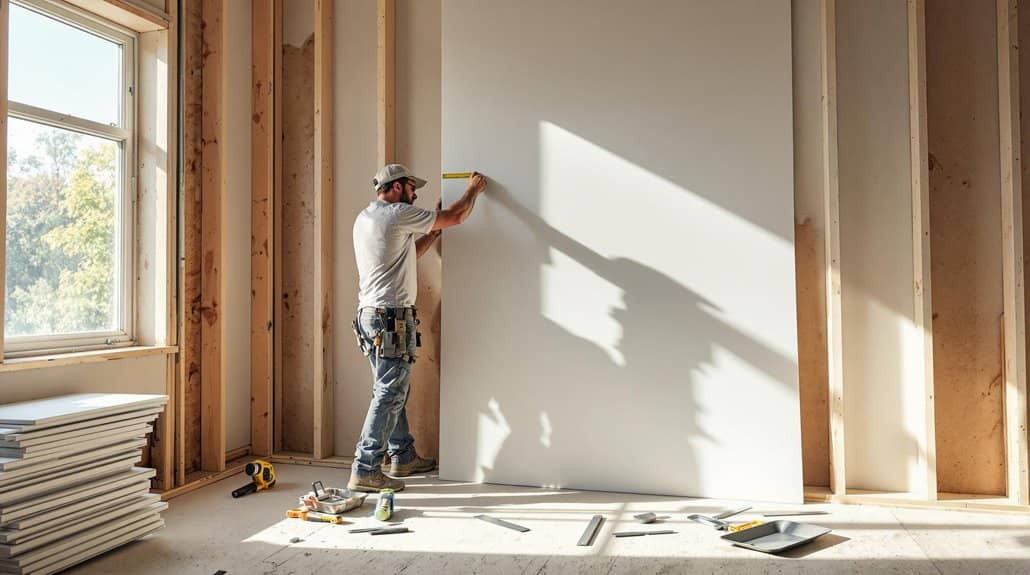Your drywall installation costs depend on five key factors. Room size and layout complexity determine material quantities and labor requirements, while material quality choices affect durability and performance. Your contractor’s experience level and local market rates influence labor costs, and your location impacts pricing through regional variations. Project timeline and scheduling can shift final costs through seasonal demands and contractor availability. Understanding these elements will help you make informed budget decisions.
Key Takeaways
- Room size and layout complexity directly impact material quantities and labor requirements, with larger or irregular spaces costing more.
- Material selection between standard drywall versus specialized options like moisture-resistant or soundproof panels affects overall project costs.
- Contractor experience and skill level influence pricing, with highly skilled professionals typically charging $0.50-$1.00 more per square foot.
- Geographic location affects costs significantly, with urban areas typically charging 10-30% more than rural locations.
- Project timeline and seasonal factors impact contractor availability and rates, potentially increasing costs during peak construction periods.
Room Size and Layout Considerations
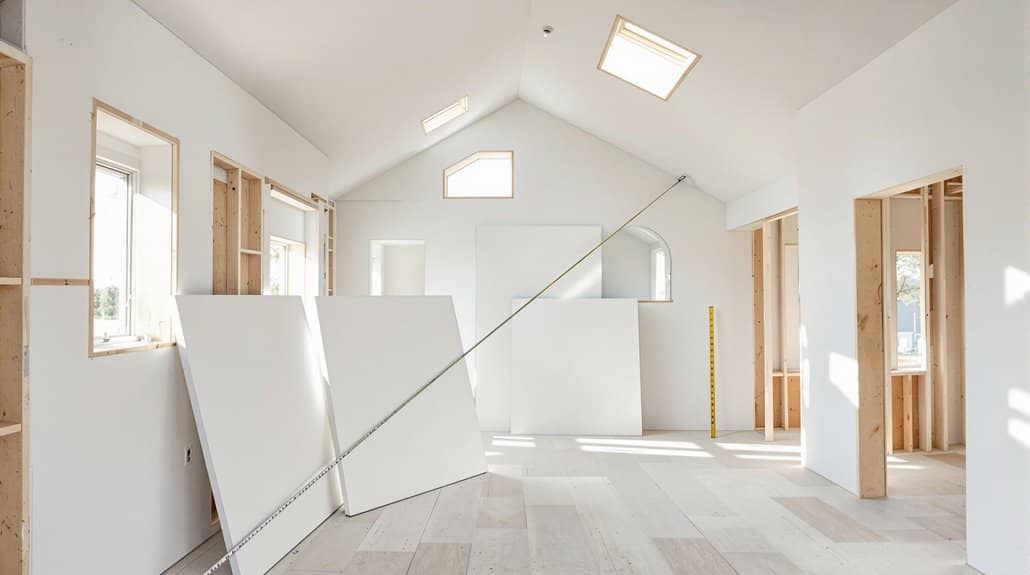
Three key factors determine drywall installation costs when considering room dimensions: square footage, ceiling height, and layout complexity.
You’ll find room size directly impacts your estimated cost, with larger spaces requiring more materials and labor. For example, a small 5′ x 8′ bathroom might cost between $300 and $1,000, while a 20′ x 20′ garage could run from $1,000 to $3,900. Layout considerations greatly affect the complexity of the installation, as rooms with multiple angles demand specialized skills and extended project timelines. Furthermore, the accessibility of your installation area influences labor costs – difficult-to-reach spaces require more time and effort. When planning your project, keep in mind that standard ceiling heights typically offer the most cost-effective option, while higher ceilings may increase both material requirements and installation expenses. Working with experienced contractors may result in higher upfront costs but typically ensures superior workmanship quality.
Material Types and Quality Options
When selecting drywall materials, you’ll need to balance quality requirements against budget constraints. Your material costs will vary considerably based on the type of drywall and specifications you choose. Standard drywall panels typically offer the most economical solution, while specialized drywall options command premium prices.
Consider these key factors when evaluating drywall cost and quality:
- The thickness of drywall panels affects soundproofing and fire resistance, with 5/8″ offering superior performance
- Specialized drywall types, like moisture-resistant or soundproof panels, increase both material costs and installation complexity
- Bulk purchasing can reduce your total expenses, especially for larger projects
- Joint tape quality impacts long-term durability, with options ranging from basic paper to premium fiberglass mesh
Your choice of materials will directly influence both immediate costs and long-term performance. For basement applications in Calgary, selecting moisture-resistant drywall options like green board or purple drywall provides essential protection against water damage and mold growth.
Labor Rates and Contractor Experience
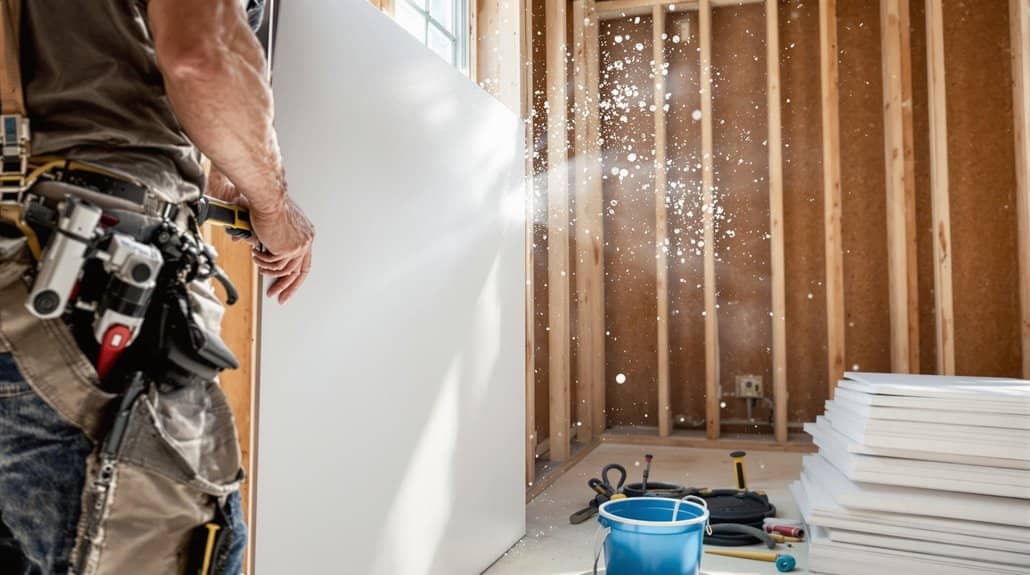
Beyond material selection, labor costs represent a considerable portion of your drywall installation budget. You’ll find that contractor experience and local market conditions directly influence pricing, with rates typically ranging from $1.00 to $3.00 per square foot. When selecting your contractor, consider how their skill level affects both quality and efficiency.
| Factor | Impact | Cost Range |
|---|---|---|
| Experience | Higher quality | +$0.50-1.00/sq ft |
| Complexity | Longer completion | +$0.75-1.50/sq ft |
| Seasonal Demand | Limited availability | +$0.25-0.75/sq ft |
| Local Market | Regional variance | +/-$0.50/sq ft |
| Reputation | Better outcomes | +$0.50-1.00/sq ft |
While you might be tempted to choose the lowest bidder, experienced contractors often justify higher rates through superior workmanship and fewer callbacks. Complex projects require extra expertise, and seasonal demand can affect installation costs substantially. Professional contractors typically charge hourly labor rates between $30 to $70 for installation and finishing work.
Ceiling Height and Wall Complexity
Ceiling height and wall complexity serve as crucial determinants of your drywall installation costs. When you’re planning your drywall project, you’ll find that rooms with ceiling heights above 10 feet can increase your expenses by 10-30% due to supplementary materials and labor requirements.
Your wall complexity directly impacts labor costs, particularly when dealing with:
- Curved surfaces and architectural arches that demand specialized skills
- Multiple wall levels requiring precise measurements and cuts
- Extensive repair work needed for water damage or large cracks
- Complex wall designs that extend installation time
The average cost for drywall installation typically ranges from $1.50 to $3.00 per square foot, but you’ll need to account for higher rates when your project includes challenging architectural features or requires substantial preparation work. Scheduling your installation during late fall to spring can help offset these higher costs due to reduced contractor demand.
Location and Market-Specific Pricing
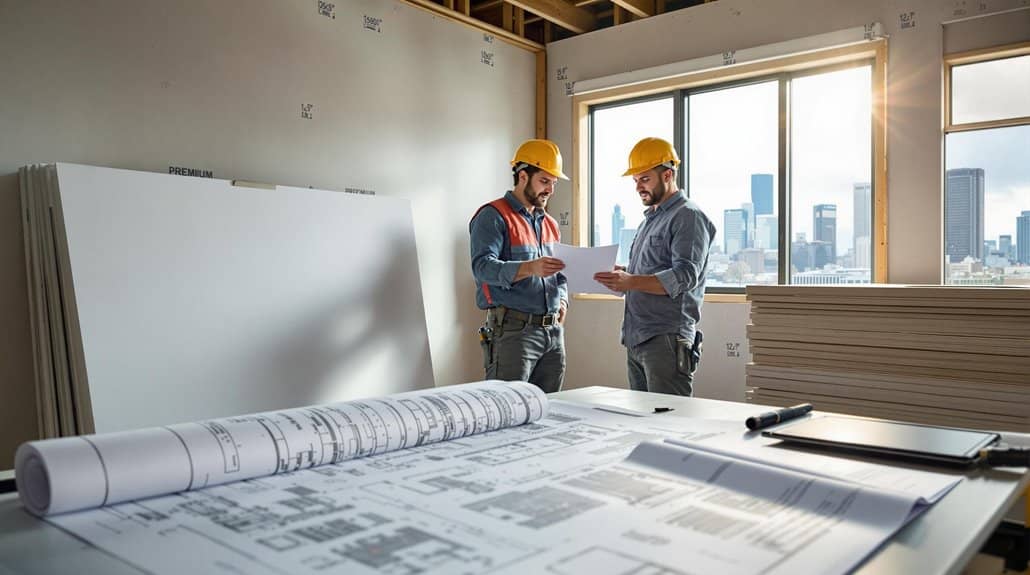
Your geographical location plays a significant role in determining drywall installation costs, much like the impact of ceiling height and structural complexity. You’ll find that market conditions in your area can trigger price changes of 5-15% annually, affecting both material availability and labor rates.
If you’re in an urban area, expect to pay 10-30% more for construction services compared to rural locations, primarily due to higher demand. Local contractor rates will vary based on competition in your market – more contractors typically mean more competitive pricing. You’ll also need to account for regional building codes that can add varying compliance costs to your project. Understanding these location-specific factors helps you better prepare for the cost of drywall installation and guarantees you’re getting fair pricing for your area. Choosing contractors who offer money-back guarantees can provide additional peace of mind when investing in drywall installation services.
Additional Services and Finishing Details
When planning your drywall project, finishing details and supplementary services can substantially impact the total cost. You’ll need to evaluate several extra services that affect your comprehensive budget, from basic finishing to specialty treatments.
- Finishing and texturing services add $0.50 to $2.50 per square foot, varying with complexity
- Painting services typically cost an extra $1.50 to $3.50 per square foot
- Specialty finishes require skilled labor and command premium rates due to expertise needed
- Cleanup and debris removal fees are typically included in project estimates
For high-ceiling installations requiring scaffolding, expect to pay 10% to 30% more than standard wall installations. Understanding these cost factors helps you make informed decisions about which extra services you’ll need, ensuring your project aligns with both your vision and budget constraints. Professional drywall services can help prevent costly mistakes and provide long-lasting results that justify the initial investment.
Project Timeline and Scheduling Impact
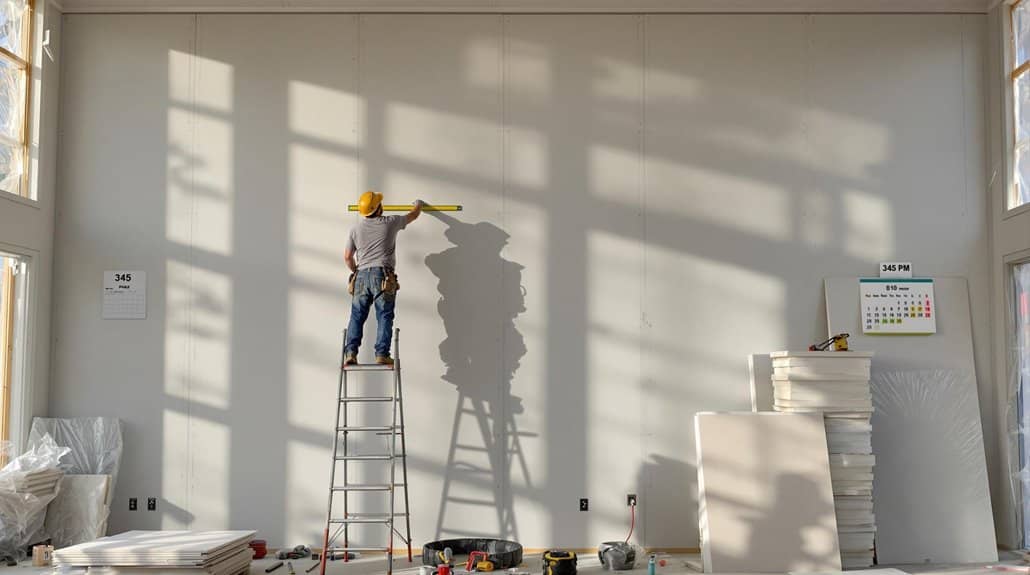
Successfully managing a drywall installation requires careful attention to project timelines and scheduling factors. You’ll find that a typical project timeline spans three days with 6-7 working hours daily, though this can vary based on your project’s specific needs. Professional drywall experts in Calgary and surrounding areas offer both residential and commercial services to meet varying timeline demands. Your scheduling flexibility may be affected by contractor wait times, especially during peak seasons. The complexity of the installation, including unique design elements or non-standard features, will impact your timeline and labor costs. You’ll need to account for potential delays from preparation work or unforeseen repairs that could extend the project duration. To maintain cost efficiency, it is crucial to coordinate material delivery and site preparation with your contractors. By understanding these timing factors, you’ll be better positioned to plan your drywall installation and manage associated costs effectively.
Frequently Asked Questions
What Is the Rule of Thumb for Drywall Estimating?
You’ll need one 4’x8′ drywall sheet per 32-48 square feet of wall space, plus 10% for waste. Consider wall height, material type, and finish level when planning your project’s material requirements.
How Much Does 1000 Sq Ft of Drywall Cost?
You’ll typically spend between $1,500 to $7,000 for 1,000 sq ft of drywall, including installation and materials. Your final cost depends on material quality, labor rates, finishing techniques, and your geographic location.
How Much Does It Cost per Square Foot to Install Drywall in Canada?
You’ll typically pay between $1.50 to $3.50 per square foot for drywall installation in Canada, including basic materials and labor. Costs vary based on your chosen drywall types, contractor rates, and finishing options.
How Much Is Labor to Hang Drywall per Sheet?
You’ll typically pay $45-65 in labor per sheet for professional drywall hanging. Rates vary based on your location and project complexity, with experienced contractors commanding higher fees for their efficient installation methods.
Conclusion
When you’re calculating drywall installation costs, you’ll need to factor in multiple variables that affect your final price. Your room’s dimensions, wall complexity, and chosen materials directly influence costs, while local labor rates and contractor expertise determine service fees. You’ll also need to account for finishing requirements, project timing, and any location-specific pricing adjustments to develop an accurate installation budget.
